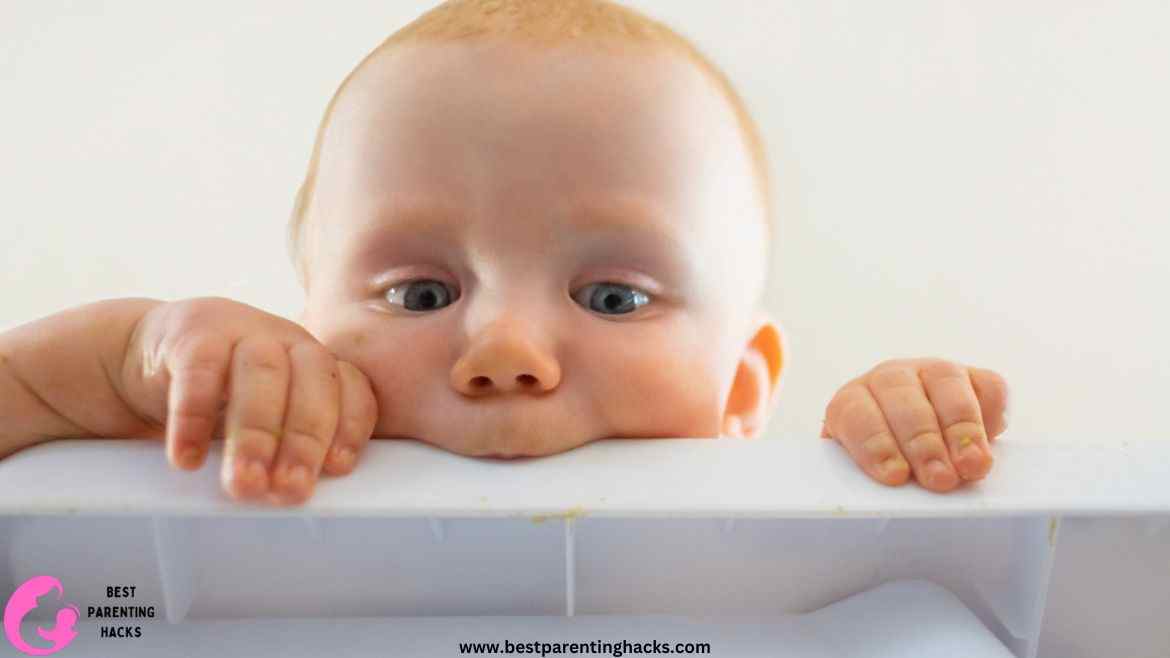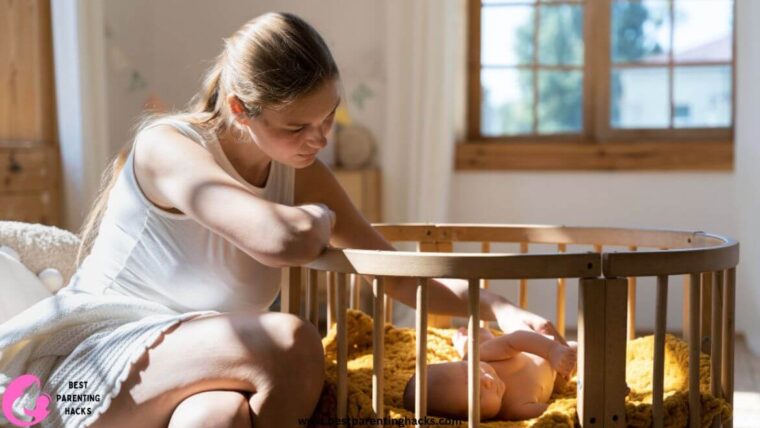Table of Contents
For every parent, seeing their child nibbling on something they shouldn’t is a heart-stopping moment. I can still clearly remember the day: there was a nice calm, almost too quiet for a home with a child, and the light was beaming through the kitchen window. My heart fell as I peered into the living room. There was my little one, munching on a piece of Styrofoam, with small fingers and interested eyes. This is a regular scenario in homes where there are young adventurers. As parents, we often face situations where our children’s curiosity leads them into situations. Although it’s a normal aspect of their development process, as parents, it may be quite stressful.
In this article, I’ll discuss my thoughts and expertise on handling a situation where your infant swallows Styrofoam. Dealing with this situation effectively involves responding to and understanding the risks involved. The first thing to keep in mind if you find yourself in this situation is to remain calm. Although Styrofoam is not harmful, there are additional concerns associated with it that we will discuss in this article. After completing the reading of this essay, you will understand the actions and strategies to prevent similar circumstances in the days ahead.
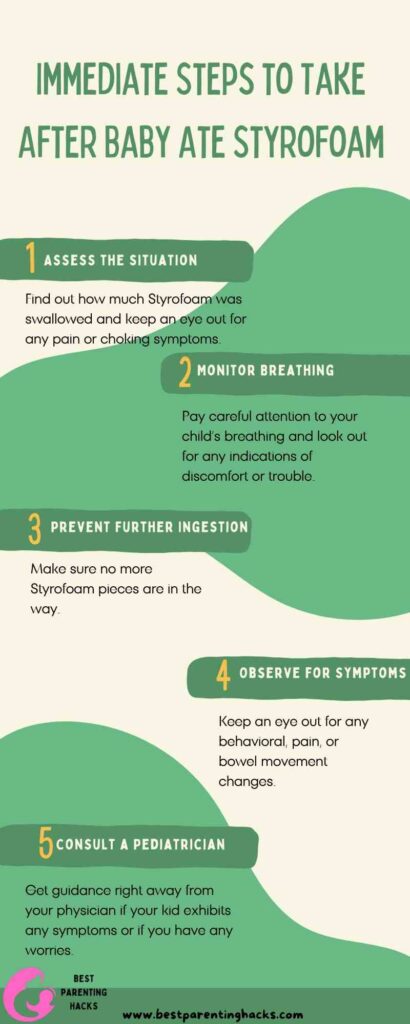
Immediate Steps to Take After Baby Ate Styrofoam
The first thing to do if you discover your toddler with a piece of Styrofoam is to remain composed. Your answer can affect how your youngster interprets the circumstances. When you make sure they are breathing regularly, gently remove any visible fragments from their mouth. The safety of your child depends on you doing the following actions.
Here are five things to think about right away:
1. Assess the situation: Find out how much Styrofoam was swallowed and keep an eye out for any pain or choking symptoms.
2. Monitor Breathing: Pay careful attention to your child’s breathing and look out for any indications of discomfort or trouble.
3. Prevent Further Ingestion: Make sure no more Styrofoam pieces are in the way.
4. Observe for Symptoms: Keep an eye out for any behavioral, pain, or bowel movement changes.
5. Consult a Pediatrician: Get guidance right away from your physician if your kid exhibits any symptoms or if you have any worries.
You Might Also Like to Read: Baby Spinning in Circles While Sitting. What’s the Reason?
Understanding Styrofoam and Its Risks
A child’s interest is typically piqued by the lightweight substance known as Styrofoam, which is present in many household objects. This kind of polystyrene foam is frequently utilized for insulation and packaging. Despite being used extensively, Styrofoam is not meant to be consumed. For a toddler, its flaky texture and low weight might make it a fascinating object. It’s crucial to realize that Styrofoam is not digested or biodegradable. It shows that if ingested it does not break down in the body leading to a risk of choking and blockage in the intestines, among young children.
It’s useful to divide the dangers related to Styrofoam into four main categories:
1. Choking Hazard: Styrofoam is easily able to obstruct a child’s airway because of its size and form.
2. Intestinal Blockage: Larger pieces of Styrofoam have the potential to become lodged in the digestive tract and cause major issues.
3. Chemical Exposure: Although Styrofoam is not intrinsically poisonous, consuming excessive amounts of its compounds can be hazardous.
4. Lack of Digestibility: Styrofoam can persist and result in inside problems since it does not decompose in the digestive system.
You Might Also Like to Read: What To Do When My Husband Gets Angry When Baby Cries?
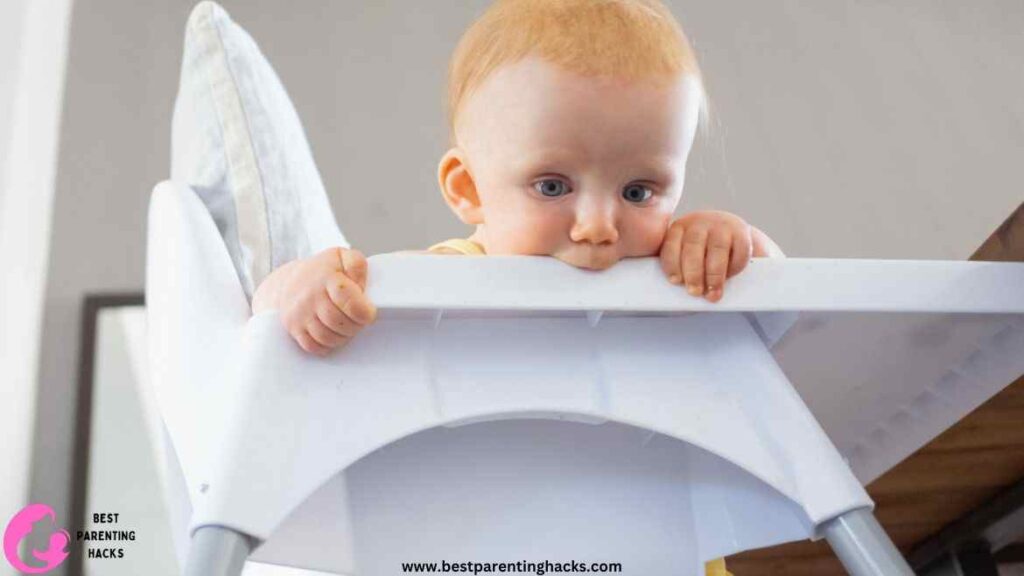
Medical Perspective and Advice
Although Styrofoam is not considered harmful from a medical perspective, young children may find its physical characteristics disturbing. Pediatricians stress the need to keep an eye out for any indications of intestinal obstruction or choking in children who have just consumed food.
The following are five crucial bits of advice from health experts:
1. Do Not Induce Vomiting: There may be more risks involved than benefits.
2. Watch for Gastrointestinal Symptoms: as throwing up, not being able to eat, or having strange bowel habits.
3. Seek Immediate Medical Attention if Symptoms Worsen: This is especially important if there are indications of respiratory distress or if vomiting is continuing.
4. Educate on Safe Eating Habits: Inform kids about what foods are and aren’t safe to eat.
5. Regular Check-Ups: Consult your physician again to be sure no long-term problems have emerged.
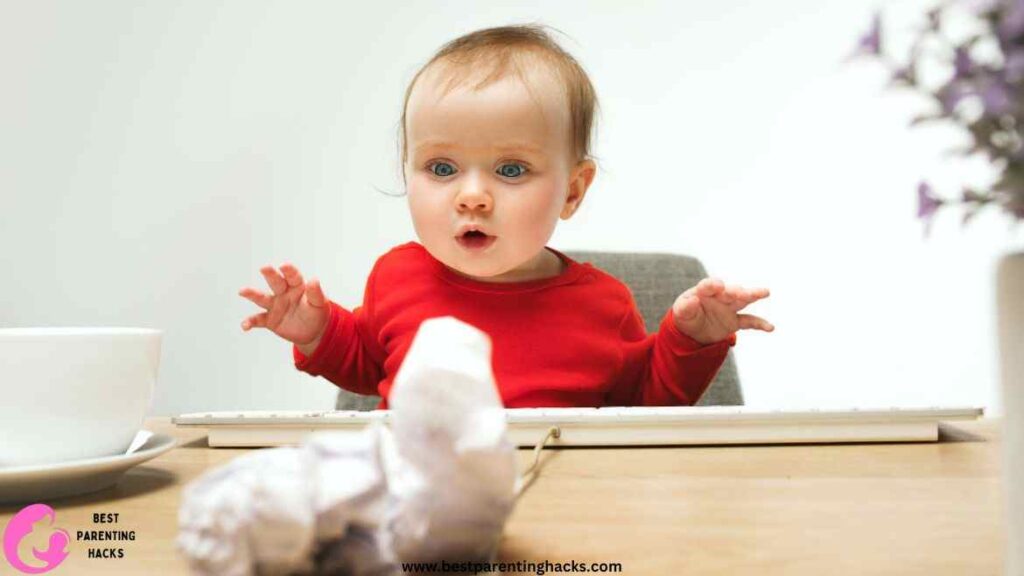
Long-Term Considerations and Prevention
It is just as crucial to know how to respond to such occurrences as it is to prevent them. The secret to averting such incidents in the future is to provide a secure space for your kids to explore.
There are four components to long-term prevention:
1. Childproofing the Home: Make sure that things like Styrofoam are out of reach.
2. Regular Safety Checks: Check play spaces often for any dangers.
3. Educate Siblings and Caregivers: Ensure that everyone in the house is informed about the dangers and how to avoid them.
4. Promote Safe Exploration: Give your kids the opportunity to explore in a secure setting.
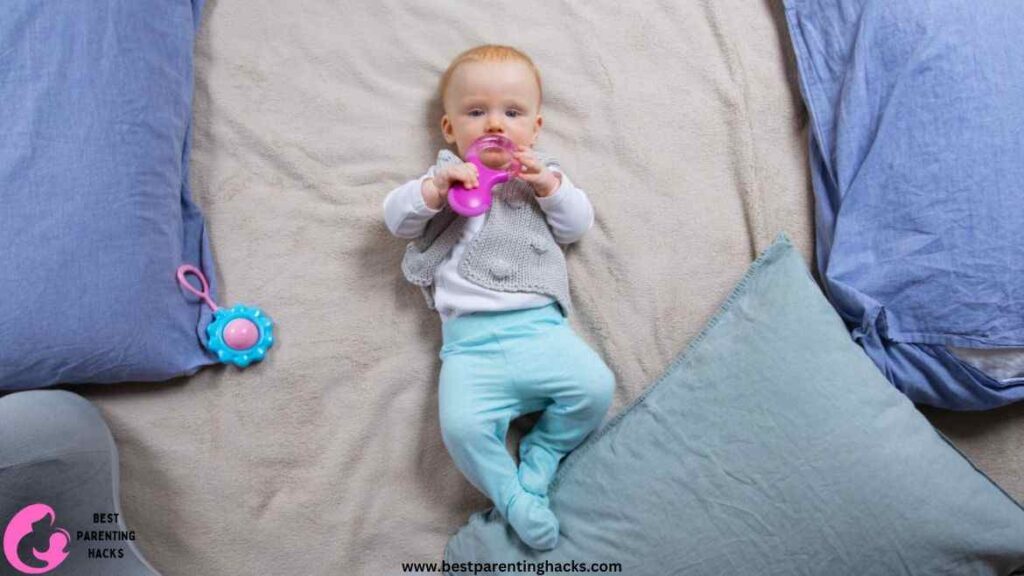
Personal Experiences and Community Advice
It can be quite beneficial to hear other parents’ stories and recommendations. Many people have shared their experiences and advice on how to handle similar circumstances in parenting groups and internet forums.
The following are five suggestions from the community:
1. Designated Play Areas: Make safe spaces that your kids can play in.
2. Regular Clean-Ups: Make sure that play spaces are clear of tiny, eatable items.
3. Involve Older Siblings: Instruct them on how to assist in separating dangerous objects from younger children.
4. Stay Informed: Stay current on suggestions and guidelines about kid safety.
5. Share Experiences: Talking with other parents about your experiences can offer encouragement and fresh perspectives.
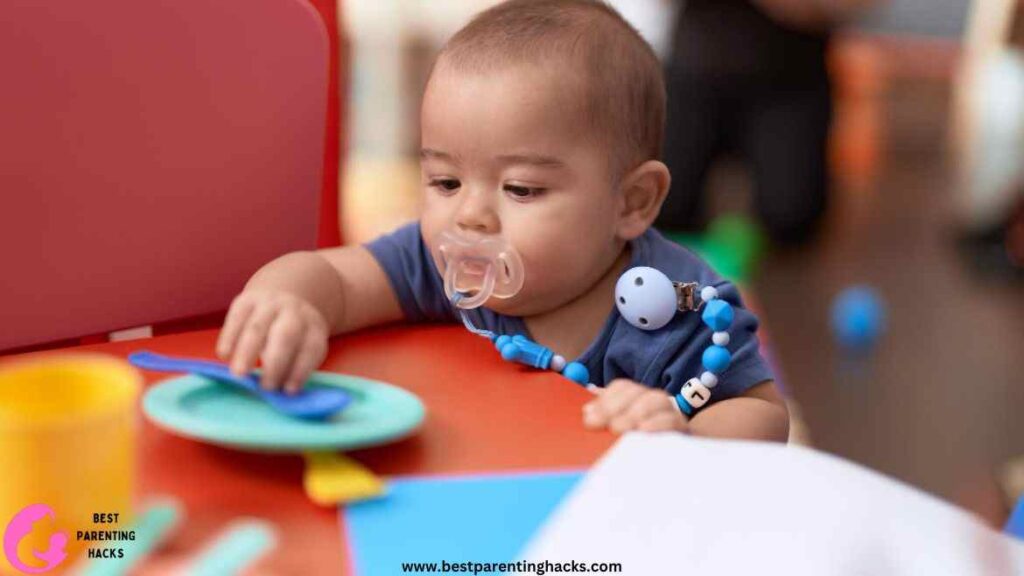
Conclusion
Raising children can be quite challenging especially when it comes to ensuring the safety of our kids. Although disturbing, the occurrence of a youngster consuming Styrofoam is frequent and, for the most part, easily handled at home. Maintaining composure, taking appropriate action quickly, and doing the correct things are crucial for your child’s safety. Recall that you are not traveling alone. Parents who have gone through similar things in the community are more than happy to provide support and guidance. Let’s ensure the safety of our adventurers by staying vigilant and taking proactive measures.
FAQs
1. Is Styrofoam harmful for kids to eat?
No, Styrofoam is not hazardous, but because of its size and form, it may be physically harmful.
2. What must I do if my kid consumes Styrofoam?
Take out any parts that remain, keep an eye on their respiration, and look for any indications of distress. See a pediatrician if you observe any symptoms that seem off.
3. How can I stop my kid from consuming Styrofoam ever again?
Store Styrofoam goods out of reach, inspect play areas often for hazards, and discuss the dangers with family members.
4. Is it possible for newborns to choke on Styrofoam?
Yes, Styrofoam can pose a choking threat because of its size and form.
5. If my toddler eats Styrofoam, should I make them throw up?
No, it is not advised to induce vomiting. The best course of action is to get guidance from a healthcare provider.
6. How much time does Styrofoam take to enter a child’s system?
Small fragments usually pass through without harming somebody; however, this varies. Monitor their bowel movements closely. Seek guidance if you notice anything worrisome.
7. Does consuming Styrofoam have any lasting effects?
As long as the Styrofoam enters the system and doesn’t obstruct or harm anything, there usually won’t be any lasting consequences.

